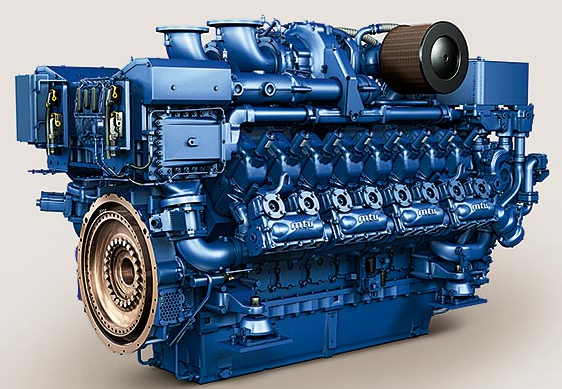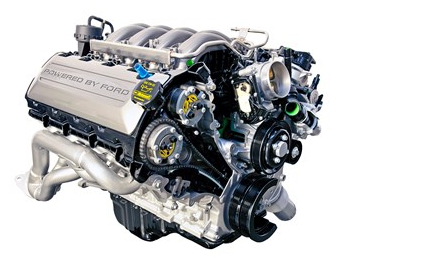Now, what is a diesel engine and a petrol engine? Petrol and diesel engines are the main engines in the automobile industry today and both are internal combustion engines. The diesel engine is an internal combustion engine in which air is compressed to sufficiently high temperature to ignite diesel fuel injected into the cylinder, where combustion and expansion actuate a piston. The combustion process in a diesel engine is said to be heterogeneous, that is, the fuel and air are not premixed prior to initiation of combustion.
The diesel engine named after Rudolf Diesel, can also be referred to as a compression-Ignition engine (CI engine), because initiation of combustion relies on air heated by compression rather than on an electric spark.

Petrol engine also referred to as Gasoline engine or Spark-ignition engine is an engine where petrol fuel or similar volatile fuels are used to produce power. It is an internal combustion engine with spark-ignition. In many of petrol engines, the fuel and air are mixed after compression in a carburetor. Although there are some modern petrol engines that use cylinder-direct petrol injection.
Petrol engines run at higher rotation speeds than diesel, because due to their lighter pistons, connecting rods and crankshaft and due to petrol burning more quickly than diesel. Typically, almost all petrol engines have approximately 20% thermal efficiency which is nearly half that of diesel engines (40%).

Key Difference
- The combustion of fuel in diesel engine takes place approximately at constant pressure, to be more precise, it works on Diesel cycle. On the other hand, the combustion of fuel in petrol engine takes place at approximately constant volume, to be more precise, it works on Otto cycle.
- In diesel engine, the fuel is first fed into the cylinder by a fuel injector and then gets mixed with air inside the cylinder. In petrol engine, the air and petrol are mixed in the carburetor before it enters into the cylinder.
- In diesel engine, only the charge of air is compressed and ignition is done by the heat of compressed air. On the other hand, in petrol engine, first the compression of air and petrol is done and then ignition is by an electric spark (spark plug).
- In diesel engine, the power developed is much more due to higher compression ratio. On the contrary, the power developed in petrol engine is low due to lower compression ratio. A diesel engine has a compression ratio approximately from 16 to 25 whereas a petrol engine has compression ratio approximately from 5 to 10.
- The diesel engines are usually installed in heavy-duty vehicles such as trucks, buses, earth moving machines, tractors, lorries etc. On the contrary, the petrol engines are usually installed in light duty vehicles such as cars, motorcycles, scooters and so on. Petrol engines are also used in airplanes and jets.
- Diesel engines are less sensitive to the quality of fuel whereas petrol engines are highly sensitive to the quality of the fuel.
- Pistons in petrol engines have much shorter strokes than pistons in diesel engines, typically, it takes less time for a piston in a petrol engine to complete its stroke than a piston in a diesel engine.
- The diesel engines are installed with injector or atomizer so as to inject the fuel at the end of the compression stroke. Petrol engines on the contrary, are installed with carburetor to mix air and petrol in the required proportion and to supply it to the engine during the sunction stroke.
- Due to the high compression ratio, the diesel engine has a large vibration therefore it produces a loud noise. On the other hand, due to the low compression ratio, the petrol engine has low vibrations so it produces low noise.
- Overheating problem is less in diesel engine due to high thermal efficiency. Thermal efficiency in a diesel engine is about 40%. Overheating problem is comparatively more in petrol engines due to low thermal efficiency. In petrol engines thermal efficiency is about 25%.
- Diesel engines are low-speed engines due to heavyweight and due to heterogeneous combustion. On the other hand, petrol engines are high-speed due to lightweight and homogenous combustion.
- Diesel engine can also be referred to as Compression Ignition Engine (CI Engine), because the ignition is caused by the heat generated during the compression stroke by a higher compression ratio. Petrol engine on the other hand, can be referred to as Spark Ignition Engine (SI Engine) because the spark plug generates a spark into the chamber plug causing ignition.
- The flywheel of diesel engines is heavy whereas that of petrol engines is light.
- In petrol engine, battery is required for the generation of spark whereas in diesel engines battery is only necessary for lighting purpose.
- The running cost of diesel engines is low because of the low cost of diesel fuel. Also engine overhauling occurs after a very long time. On the other hand, the running cost of petrol engine is higher because of higher cost of petrol fuel. Also, petrol engines need repeated overhauling.
- In diesel engines, the pressure at the end of the compression is about 35 bar whereas in petrol engines, the pressure at the end of the compression is about 10 bar.
- The starting of the diesel engine is relatively difficult due to higher compression ratio compared to a petrol engine.
Read Further: Difference between Carnot Cycle and Rankine Cycle
Difference Between Diesel And Petrol Engine In Tabular Form
| BASIS OF COMPARISON | DIESEL ENGINE | PETROL ENGINE |
| Combustion Of Fuel | The combustion of fuel in takes place approximately at constant pressure, to be more precise, it works on Diesel cycle. | The combustion of fuel takes place at approximately constant volume, to be more precise, it works on Otto cycle. |
| Mixing Of Fuel & Air | The fuel is first fed into the cylinder by a fuel injector and then gets mixed with air inside the cylinder. | The air and petrol are mixed in the carburetor before it enters into the cylinder. |
| Ignition | In diesel engine, only the charge of air is compressed and ignition is done by the heat of compressed air. | In petrol engine, first the compression of air and petrol is done and then ignition is by an electric spark (spark plug). |
| Compression Ratio | In diesel engine, the power developed is much more due to higher compression ratio. | The power developed in petrol engine is low due to lower compression ratio. |
| Installation | They are usually installed in heavy-duty vehicles such as trucks, buses, earth moving machines, tractors, lorries etc. | They are usually installed in light duty vehicles such as cars, motorcycles, scooters and so on. Petrol engines are also used in airplanes and jets. |
| Sensitivity To Fuel Quality | They are less sensitive to the quality of fuel. | They are highly sensitive to the quality of the fuel. |
| Pistons | Pistons in Diesel engines have much longer strokes than pistons in petrol engines. | Pistons in petrol engines have much shorter strokes than pistons in diesel engines. |
| Injector/Carburetor | They are installed with injector or atomizer so as to inject the fuel at the end of the compression stroke. | They are installed with carburetor to mix air and petrol in the required proportion and to supply it to the engine during the sunction stroke. |
| Vibrations | Due to the high compression ratio, the diesel engine has a large vibration therefore it produces a loud noise. | Due to the low compression ratio, the petrol engine has low vibrations so it produces low noise. |
| Overheating Problem | Overheating problem is less in diesel engine due to high thermal efficiency. Thermal efficiency in a diesel engine is about 40%. | Overheating problem is comparatively more in petrol engines due to low thermal efficiency. In petrol engines thermal efficiency is about 25%. |
| Speed | They are low-speed engines due to heavyweight and due to heterogeneous combustion. | They are high-speed due to lightweight and homogenous combustion. |
| Flywheel | The flywheel of diesel engines is heavy. | The flywheel of petrol engines is light. |
| Battery | Battery is only necessary for lighting purpose. | Battery is required for the generation of spark |
| Running Cost | The running cost is low because of the low cost of diesel fuel. Also engine overhauling occurs after a very long time. | The running cost of is higher because of higher cost of petrol fuel. Also, petrol engines need repeated overhauling. |
| Compression Pressure | The pressure at the end of the compression is about 35 bar. | The pressure at the end of the compression is about 10 bar. |
| Starting The Engine | The starting of the diesel engine is relatively difficult due to higher compression ratio compared to a petrol engine. | The starting of the petrol engine is relatively simple due to low compression ratio compared to a diesel engine. |

Comments are closed.